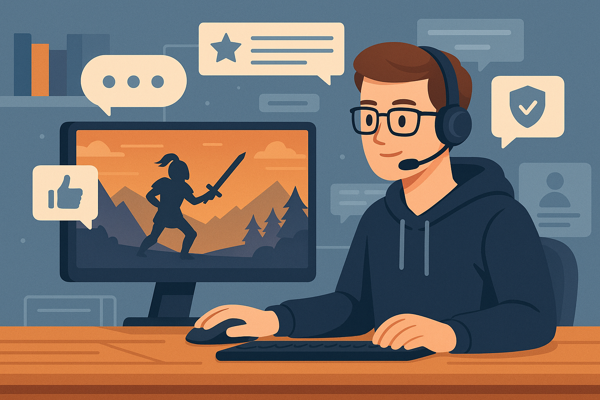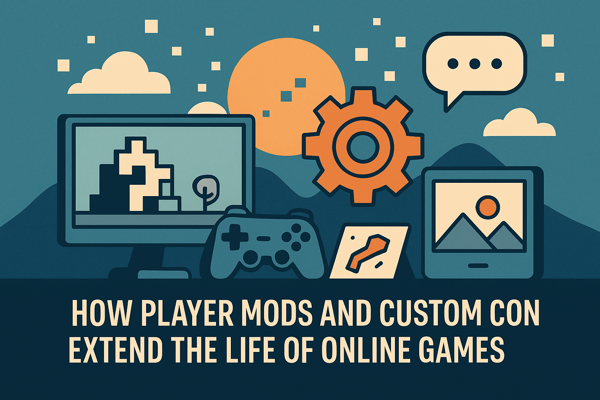When we think of online games, we often picture the developers, designers, and players who bring these digital worlds to life. But there’s a group working quietly behind the curtain, making sure everything runs smoothly, players feel heard, and communities stay active and positive. These are the community managers—the unsung heroes of the gaming world.
In this article, we dive into the world of community management in online games, exploring what these professionals do, why their work matters, and how they shape the experiences of millions of players around the world.
What Is a Community Manager?
A community manager (often shortened to CM) acts as the bridge between a game’s developers and its players. They are responsible for building, nurturing, and maintaining healthy online communities around a game or gaming platform.
While their job may seem simple on the surface—posting updates, responding to comments, moderating forums—it’s much more complex. CMs must understand the game inside and out, communicate clearly and professionally, and manage both excitement and backlash from a passionate player base.
They are part public relations expert, part customer support agent, part event organizer, and part social media strategist—all rolled into one.
Key Responsibilities of Community Managers
Here’s a look at the core roles a community manager plays in the online gaming ecosystem:
1. Communication and Information Flow
Community managers are often the first to share news about updates, patches, and events. They also relay player feedback to the development team, helping shape future improvements. In essence, they serve as a two-way communication channel.
2. Moderation and Conflict Resolution
Online communities can be intense. CMs are responsible for enforcing rules, managing heated discussions, and making sure the environment stays respectful and welcoming for all players. This often involves banning toxic users, resolving disputes, and setting the tone for online interaction.
3. Event Management and Engagement
From live Q&As and contests to in-game events and social media campaigns, community managers keep the player base engaged and entertained. These activities build loyalty and excitement, especially between major updates.
4. Crisis Handling
When something goes wrong—a server crash, bug, or controversial update—the community manager is on the front lines. They must respond quickly, provide clear updates, and help calm the community while solutions are being developed.
5. Content Creation
CMs often create their own content: dev blogs, patch notes, memes, videos, and newsletters. This content keeps players informed and reinforces the game’s personality and voice.
Why Their Role Matters
In modern gaming, community is everything. Games are no longer isolated experiences; they live and breathe through forums, Discord servers, Reddit threads, and social media platforms. A strong community manager helps:
- 🧭 Guide the community through changes, updates, and events
- 💬 Foster discussion and encourage healthy, inclusive interaction
- 🧠 Gather insights from players to inform developers
- 🛡️ Protect the brand during difficult moments
- 💖 Create a sense of belonging among players
Without community managers, even the best-designed games can struggle to maintain an active and positive user base.
Real-Life Example: How a CM Can Impact a Game
Take an online RPG with a dedicated but demanding fanbase. A recent update introduces changes to combat mechanics that some players dislike. Without clear communication, forums quickly fill with complaints, rumors, and misinformation.
Here, the CM steps in—writing a detailed post explaining the reasoning behind the update, answering top questions, and sharing a timeline for upcoming fixes. By doing this, they help rebuild trust and prevent player drop-off.
This kind of calm, transparent response isn’t just helpful—it’s essential in today’s competitive gaming landscape.
Skills That Make a Great Community Manager
To handle the wide variety of tasks and challenges, top-tier community managers often have the following traits:
- 💡 Empathy: Understanding how players feel and responding with kindness and patience
- ✍️ Strong communication: Writing clear, engaging posts that represent both players and developers
- 🕹️ Passion for gaming: Knowing the game deeply and appreciating its culture
- 🧩 Problem-solving skills: Finding fair solutions to player issues and managing crises
- 📊 Analytical thinking: Understanding data, feedback trends, and community health
Final Thoughts
While they may not write code or design characters, community managers are essential to the success and longevity of online games. They help shape the emotional experience of players, build trust between fans and developers, and keep digital worlds thriving long after launch day.
So next time you read a dev update, participate in a game event, or get a thoughtful reply on a forum—remember there’s likely a community manager working hard behind the scenes to make that happen.
At our platform, we’ll continue spotlighting the hidden heroes of the gaming world and offering insights into what makes the industry tick—from both sides of the screen.

